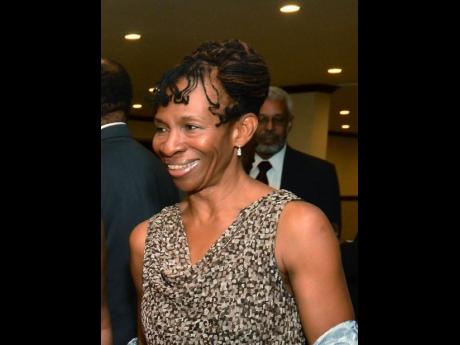Practical nurse schooling in disarray – expert - Fly-by-night trainees unable to do basic tasks
The lack of uniform standards for schools that train practical nurses has resulted in hundreds of health professionals graduating each year still unable to perform vital tasks such as blood-pressure checks.
The matter is of serious concern for president of the Practical Nurses Association of Jamaica (PNAJ), Stephanie Powell, who said that she has been pressing, in vain, for a universal curriculum for these schools.
“Most of these schools out there, they are not teaching the same standards, so everybody is on a different level,” she said.
Programmes run for as short as six months and last as long as 18 months.
“They keep saying that because they are independently run, the Government has nothing to do with them,” said Powell.
The PNAJ has more than 3,000 members.
Powell is aware of more than 20 schools that offer courses in the field, but with new ones coming on stream, it is difficult to keep track of how many are actually operating islandwide. The practical nurse notices that several have been making grand promises to attract students.
“At the end of these courses, they are graduating them and sending them out, and three-quarters of them can’t get jobs,” lamented Powell, who has been a practical nurse for more than two decades.
She said that she has got several complaints from students who feel that they have been deceived after spending as much as $80,000 to be certified. She told The Gleaner of a concern that was recently raised by a student after signing up for a course.
“Her concern was that she should be going out to do her practical, and persons from the school are telling her that she should go search for nursing homes that would take her to do her practicum,” the association president said.
“You don’t do that. If you are taking her money, you should find the place for her to do her practical.”
90 per cent fail
Principal of the Strategic Management and Training Consultants Limited Career Institute, Beverley Dinham Spencer, disclosed recently that she had come across many graduates who are unable to do vital checks. Her institution conducts skill assessments of allied health workers at the request of prospective employees.
“So far, we have found that about 90 per cent of the persons who come in to do assessments have failed. Some of them are in shock when they fail,” she said.
“Some of them knew that they were going to fail, and it says a lot about how we are training people.”
Much of the competence deficit surrounds the fact that many practical nurses are schooled in theory but have limited, if any, clinical practice. Many also cannot operate basic health equipment.
Practical nurses are generally employed to give bedside care at health facilities such as hospitals, nursing homes, and care facilities for convalescents. They are often referred to as patient-care assistants, helping to bathe and feed patients and collect vital data such as blood pressure and temperature readings.
Training institutions are required to be certified by the Independent Schools Unit at the Ministry of Education, Youth and Information. But based on her observation, Powell does not believe all are following the regulations.
She has noticed, too, that some of these schools disappear after operating for between two and four years.
“There was one young lady ... when she was ready to go back for her certificate, the school was no longer in existence,” Powell said.

